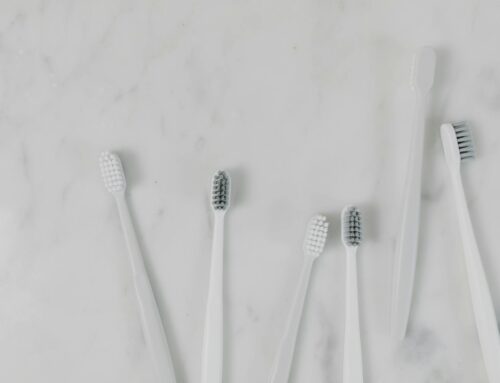Recent research has found a link between antiresorptive medicines, which are used for bone conditions, and jaw disease. Moreover, the addition of corticosteroids made the connection stronger. This is concerning, given the number of people that regularly take antiresorptive medicines. Therefore, the researchers have recommended that health professionals monitor such patients closely.

New research has found a link between commonly used bone condition medications and the development of jaw disease [1]. This link is rather concerning.
The research found that this was link was even stronger when a person combines their medicine with a corticosteroid [1]. These are important findings.
As a result, the researchers have urged health professionals to carefully monitor existing patients taking these medicines, along with considering alternatives for future patients [1].
About the medicines
The medicines involved in the study are known as Antiresorptive drugs. Common antiresorptive drugs include Aledronate and Risedronate.
Antiresorptive drugs work by slowing down or blocking the process of bone resorption. Bone resorption involves the body breaking down old bone tissue to enable new bone growth [2].
These medicines can increase bone density, strengthen bones, and reduce the risk of fractures [2]. Therefore, there are a range of benefits to them.
These medicines are used in the treatment of conditions like osteoporosis, which involves bones weakening over time [3]. This often causes broken wrists, hips, and even spinal bones [3].
These medicines usually have few side effects. Indigestion, constipation, headaches, and tiredness have all been reported. However, this research has led to concerns over jaw disease being a side effect.
What is the jaw condition?
The condition involved in the research is referred to as Osteonecrosis of the jaw [1]. The research team were looking to see if this was linked to antiresorptive drugs.
Osteonecrosis involves the jawbone weakening and deteriorating. It is seen as a severe condition as it usually involves a lack of blood supply.
The condition normally develops after invasive dental procedures. For example, this is often a tooth extraction [4]. While these are common procedures, they are not always perfect.
The jawbone can become very painful and the gums will normally swell. The person will typically have difficulty in chewing [4]. Quality of life will often be impacted. Therefore, avoiding this condition is important.
The Research
The research was carried out by a team of Finnish researchers from the University of Oulu. Their findings have been published in the Scientific Reports journal [1].
The researchers analyzed data from Finnish adult patients who began a bone medication between 2013 and 2015. This meant there were 58,367 participants in this study [1].
Some patients took a bone medicine called Denosumab, while others took a drug in the bisphosphonate class, which is part of the wider antiresorptive drug group [1]. These are widely taken drugs in Finland.
The participants were therefore split into groups. Researchers wanted to compare the long-term health of the two groups to see if the medicine they were taking could be linked to osteonecrosis [1].
Moreover, there was a third group. This was anyone who was taking either denosumab or bisphosphonates, as well as a corticosteroid [1].
The overall results showed that the incidence of osteonecrosis was 0.3% among low dose antiresorptive drug users and up to 9% in those with high doses of the drugs [1].
The patients using denosumab were the most affected. Those taking denosumab were up to five times more likely to suffer serious jaw damage compared to those taking bisphosphonates [1].
There was still a risk for those taking bisphosphonates, but it was significantly lower than the risk attributed to denosumab [1].
In a concerning result, the addition of corticosteroids to either group increased the risk of osteonecrosis developing [1].
Simultaneous use of a corticosteroid and an antiresorptive drug increased the risk of developing osteonecrosis by 2 times in those taking high dose antiresorptive drugs, and 6 times in those taking low dose antiresorptive drugs [1].
The researchers could therefore conclude that antiresorptive drugs are definitely linked to an increased chance of developing osteonecrosis of the jaw [1].
Summary and recommendations
While these findings are concerning, the increased awareness of this link is helpful. This is particularly the case with the addition of corticosteroids.
As a result of the findings, the researchers have suggested that health professionals carefully monitor any of their patients taking these medicines – especially those with oral health problems [1].
Furthermore, they have also recommended considering alternative drug treatments for some patients [1]. Osteonecrosis of the jaw is a debilitating condition, so avoiding it is important.
But the researchers have also pointed out that patients have a responsibility of their own – looking after their oral health, as this can reduce the risk of problems.
Lead author Miika Kujanpää summarized the findings. He said that “our study confirms that denosumab is associated with a significantly higher risk of jaw osteonecrosis compared to bisphosphonates, but the difference in risk between the two was surprisingly large” [5].
Continuing, Kujanpää said that “it was also particularly surprising how strongly the simultaneous use of corticosteroids increased the risk in patients on low-dose bone medication” [5].
Overall, these conclusions are important and should result in wider discussions and analysis regarding these medicines, especially when the topic involves jaw disease.
Thinking points…
[1] This is another example of how physical and oral health are closely linked. One of the benefits of a regular dental check-up is that dentists are trained to look out for the signs of health conditions outside of the teeth and gums – such as jaw problems. Therefore, it is very important that you attend dental check-ups regularly. A dentist will be able to take a thorough look at your mouth and take action if something looks amiss. We recommend that you book an appointment now!
[2] Do you know anyone that takes an antiresorptive medicine? If so, they may benefit from knowing about this research. They may wish to consult their doctor about the medicine, especially if they have existing oral health conditions. Therefore, why not share this article with them now?
What we offer at Taradale Dental
Taradale Dental is a dental clinic based in Calgary, Alberta, Canada. At our Calgary dental clinic, we provide a range of services for our patients.
We advise our patients to attend our Calgary dental clinic at least twice per year for a regular dental check-up. At these check-ups, we provide a comprehensive review of a patient’s oral health. If any problems are detected, we have many treatments available. For example, these include cavity fillings and root canals. To strengthen your oral health, we recommend brushing your teeth at least twice a day and flossing regularly.
Here at Taradale Dental, we also have some cosmetic treatments available! These include dental implants, teeth whitening and Invisalign™! Our patients find that these treatments have a positive impact on their appearance, confidence and self-esteem.
Moreover, the fees of our treatments at our Calgary dental clinic Taradale Dental are set in line with the Alberta Dental Fee Guide. This ensures transparent and fair pricing, with no hidden costs.
We hope to see you soon at our Taradale Dental clinic in Calgary! You can find out more about us by visiting our website https://taradaledental.ca/!
References
[1] Kujanpää, M., Vuollo, V., Tiisanoja, A., et al. (2025). Incidence of medication-related osteonecrosis of the jaw and associated antiresorptive drugs in adult Finnish population. Scientific Reports. 15 (17377). DOI: https://doi.org/10.1038/s41598-025-02225-2.
[2] Recker, R. R., & Armas, L. (2011). The Effect of Antiresorptives on Bone Quality. Clinical Orthopaedics and Related Research. 469 (8): p2207-2214. DOI: https://doi.org/10.1007/s11999-011-1909-8.
[3] NHS. (2022). Osteoporosis. Available: http://https.www.nhs.uk/conditions/osteoporosis/. Last accessed: 7th June 2025.
[4] Royal Osteoporosis Society. (2024). Osteonecrosis of the jaw (ONJ) and drug treatments for osteoporosis. Available: https://theros.org.uk/information-and-support/osteoporosis/treatment/health-risks/osteonecrosis-of-the-jaw/. Last accessed: 7th June 2025.
[5] University of Oulu. (2025). Common bone medications linked to serious jaw disease. Available: https://medicalxpress.com/news/2025-06-common-bone-medications-linked-jaw.html. Last accessed: 7th June 2025.



Leave A Comment